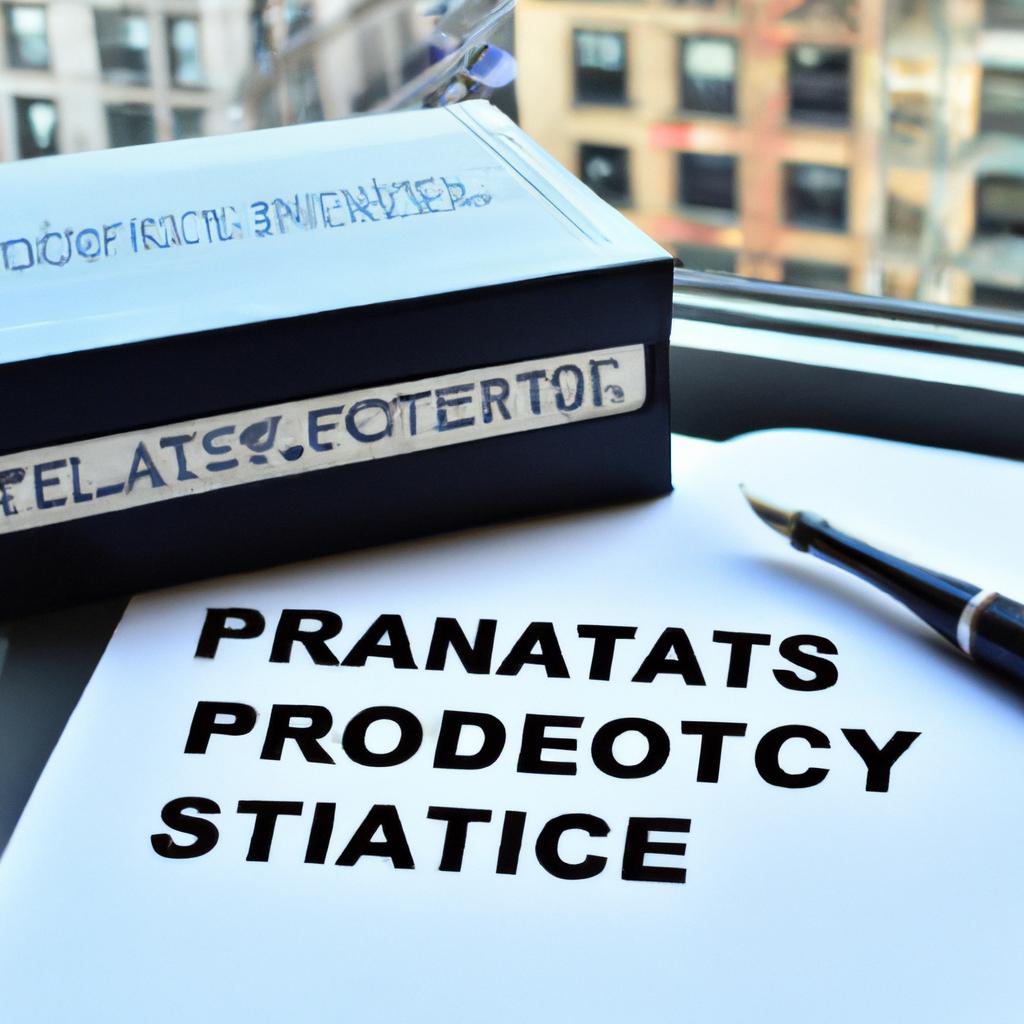Probate, often described as the legal process of administering a deceased person’s estate, is a crucial step in the distribution of assets and resolution of debts. As experienced lawyers specializing in estate planning, elder law, Wills, and trusts at Morgan Legal Group in New York City, we understand the complexities and intricacies of probate law. In this article, we will delve into the fundamentals of probate, outlining the key procedures and considerations involved in navigating this essential aspect of estate administration. Join us as we explore the nuances of probate law and provide valuable insights for those seeking clarity on this vital legal process.
Understanding the Probate Process in New York State
Probate in New York State can be a complex and time-consuming process, but having a clear understanding of how it works can help ease the stress of dealing with the estate of a loved one. Here are some key points to consider:
- Probate Court: The probate process in New York State takes place in the Surrogate’s Court in the county where the deceased person lived.
- Executor: The executor of the estate is responsible for managing the probate process, including gathering and inventorying assets, paying debts and taxes, and distributing assets to beneficiaries according to the terms of the Will.
It is important to work with an experienced estate planning attorney to navigate the probate process in New York State effectively and efficiently. At Morgan Legal Group, our team of skilled lawyers can provide guidance and support throughout the probate process, ensuring that your loved one’s final wishes are carried out smoothly and accurately.

Key Factors Impacting the Probate Timeline and Costs
When it comes to navigating the probate process, there are several key factors that can significantly impact both the timeline and costs involved. One of the most important factors to consider is the complexity of the estate. A simple estate with few assets and clear beneficiaries will likely move through probate more quickly and with lower costs compared to a complex estate with numerous assets, disputes among heirs, or unresolved debts.
- Number of beneficiaries: The more beneficiaries involved, the more potential for disagreements and delays in the probate process.
- Value of assets: Higher value assets can lead to higher probate costs, especially if appraisals are required.
- Location of assets: Assets located in different states or countries can prolong the probate process due to additional legal requirements.
| Factors | Impact |
|---|---|
| Complexity of the estate | Can lead to longer probate timeline and higher costs. |
| Number of beneficiaries | May result in disputes and delays in the probate process. |
| Value of assets | Higher value assets can increase probate costs. |
| Location of assets | Assets in different locations can prolong the probate process. |

Navigating Complex Probate Laws: Common Pitfalls to Avoid
When navigating the complex landscape of probate laws, it’s crucial to be aware of common pitfalls that can arise. One common mistake is not understanding the specific requirements for filing documents with the court. Each state has its own set of rules and regulations governing the probate process, so it’s important to ensure that all necessary paperwork is completed accurately and submitted on time.
Another pitfall to avoid is failing to properly account for debts and liabilities of the deceased. It’s essential to thoroughly review and document all outstanding debts and expenses before distributing any assets to heirs. Failure to do so could result in legal disputes and delays in the probate process.

Strategies for Efficient Probate Administration in New York City
In probate administration in New York City, it is crucial to have a clear understanding of the process to ensure efficiency and effectiveness. One key strategy is to gather all necessary documentation promptly, such as the deceased’s Will, death certificate, and financial records. This will help streamline the probate process and prevent unnecessary delays.
- Thoroughly review the Will and any relevant estate planning documents.
- Identify and notify beneficiaries and heirs promptly.
- Work closely with the Surrogate’s Court to ensure all requirements are met.
Another important strategy is to work with experienced professionals, such as attorneys and financial advisors, who specialize in probate administration in New York City. These experts can provide valuable guidance and expertise to navigate the complexities of the probate process and ensure compliance with all legal requirements.
- Consider creating a detailed timeline and action plan to stay organized and on track.
- Regularly communicate with all parties involved to provide updates and address any concerns.
- Seek legal advice on tax implications and potential disputes to minimize risks and complications.
Q&A
Q: What is probate?
A: Probate is the legal process of administering a deceased person’s estate, including distributing their assets and paying off any debts.
Q: Why is probate necessary?
A: Probate is necessary to ensure that a deceased person’s assets are distributed in accordance with their wishes and state laws. It also helps to resolve any disputes or claims against the estate.
Q: How long does probate typically take?
A: The length of the probate process can vary depending on the complexity of the estate and any potential issues that arise. It can take anywhere from a few months to several years to complete.
Q: What assets are subject to probate?
A: Assets that are typically subject to probate include real estate, bank accounts, investments, vehicles, and personal belongings. However, assets held in a trust or designated beneficiaries may bypass probate.
Q: Can probate be avoided?
A: Yes, probate can be avoided by creating a comprehensive estate plan that includes trusts, joint ownership, and designated beneficiaries for assets. This can help streamline the distribution of assets and minimize the time and costs associated with probate.
Q: How much does probate cost?
A: The cost of probate can vary depending on the size and complexity of the estate, as well as any potential legal fees and court costs. It is important to consult with an attorney to understand the potential costs associated with probate.
Future Outlook
In conclusion, navigating the complexities of probate can be a daunting task, but with the right legal guidance and understanding, it can be a manageable process. Remember to gather all necessary documentation, communicate effectively with beneficiaries, and seek guidance from professionals when needed. With patience and perseverance, you can successfully navigate through the probate process and ensure the final wishes of your loved ones are carried out smoothly. Take the time to plan ahead and educate yourself on probate procedures to make the journey as stress-free as possible. Good luck on your probate journey!

